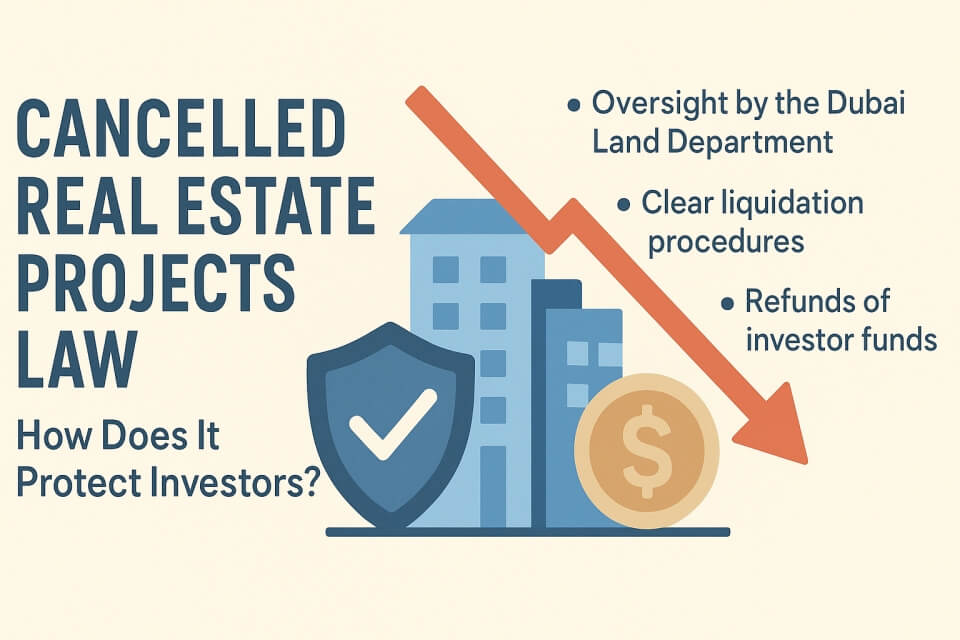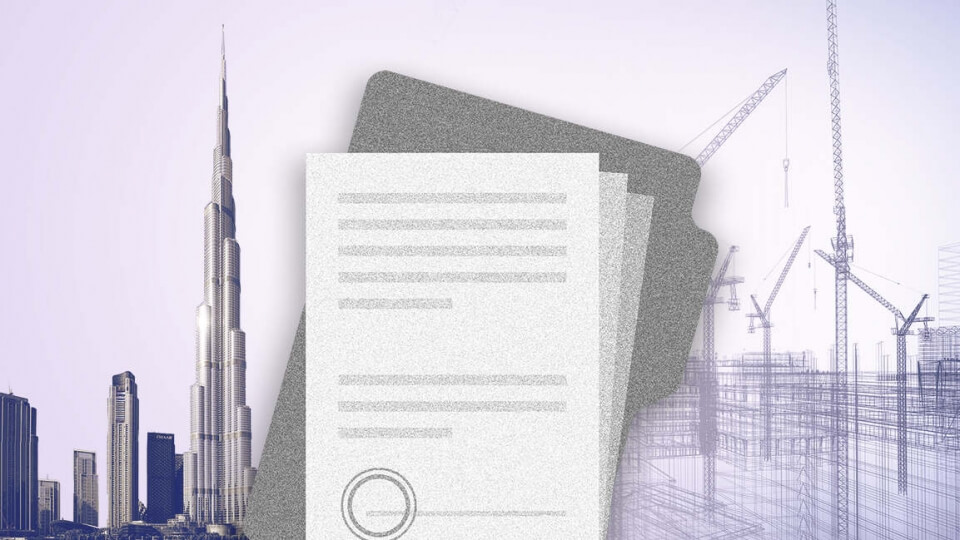Legal blog
️ Cancelled Real Estate Projects Law: How Does It Protect Investors?

Introduction
Real estate investment in the UAE is one of the most attractive opportunities for both local and foreign investors. However, in some cases, developers may delay handover, or projects may be cancelled altogether.
To address such issues, the Cancelled Real Estate Projects Law was introduced to safeguard investors’ rights and regulate the liquidation of these projects.
What is the Cancelled Real Estate Projects Law?
The law aims to protect investors’ funds by setting out a clear legal mechanism to manage cancelled or stalled projects, including:
• Oversight by the Dubai Land Department (DLD) to supervise project cancellation.
• Appointment of a liquidation committee to review accounts and distribute funds.
• Clarification of the developer’s obligations to ensure full transparency.
• Refund of investors’ money after deducting actual costs and obligations.
How Do Investors Benefit From This Law?
1. Right to refunds: Investors are entitled to recover part of their money after liquidation.
2. Clear legal procedures: Developers are bound by law, leaving no room for arbitrary decisions.
3. Government supervision: The DLD oversees the liquidation process to ensure fairness.
4. Reduced disputes: The law helps avoid lengthy and costly litigation.
What Should Investors Do?
• Verify that the project is officially registered with the Dubai Land Department.
• Keep all contracts, payment receipts, and related documents.
• File a claim with the liquidation committee once the project cancellation is announced.
• Seek professional legal advice to ensure full protection of your rights.
Conclusion
The Cancelled Real Estate Projects Law provides a vital safety net for investors when projects are delayed or cancelled. However, staying informed and working with an experienced legal consultant remains the best way to secure your investment.
For tailored legal support regarding real estate disputes or cancelled projects, contact us today.
Written by:
Ismail Salman | ISN Legal Consultancy

This publication is for general information purposes only. It does not purport to provide comprehensive full legal or other advice.
Legal Advice Middle East and the contributors accept no responsibility for losses that may arise from reliance upon information contained in this publication. This publication is intended to give an indication of legal issues upon which you may need advice.
Full legal advice should be taken in due course from a qualified professional when dealing with specific situations.


